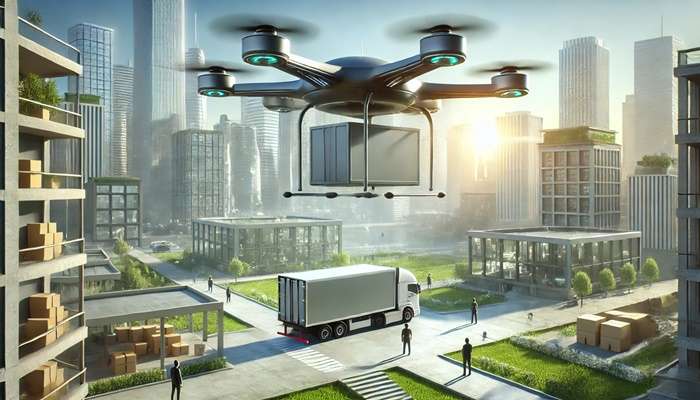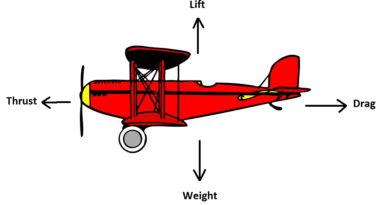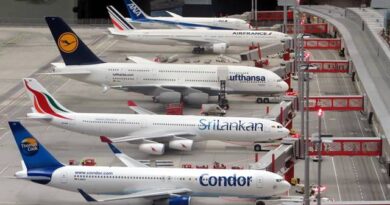Revolutionizing Delivery: The Future of Cargo by Drone
Cargo delivery by drone refers to the use of unmanned aerial vehicles (UAVs) to transport packages and goods from one location to another. This technology leverages advanced navigation systems, sensors, and automation to make deliveries quickly and efficiently.
Benefits of Cargo Delivery by Drone
- Speed and Efficiency
Drones can deliver packages faster than traditional ground vehicles, especially over short distances. They bypass traffic congestion and take the most direct routes, ensuring rapid delivery. - Cost-Effective for Certain Deliveries
For small, high-value items, drones can be more cost-effective than traditional delivery methods. They reduce labor costs and fuel expenses, making them ideal for urgent deliveries. - Environmental Impact
Drones produce fewer emissions compared to trucks and vans, contributing to lower carbon footprints. This makes them a greener option for last-mile deliveries. - Accessibility
Drones can access remote or hard-to-reach areas where traditional delivery methods might struggle. This includes rural areas, islands, or regions with poor infrastructure.
Difficulties Encountered in Drone Delivery
- Regulatory Hurdles
Government regulations are one of the biggest obstacles. Many countries have strict rules about drone flights, especially in urban areas, to ensure safety and privacy. - Technical Challenges
Drones face technical issues such as limited battery life, payload capacity, and navigation in adverse weather conditions. These factors can limit their operational range and reliability. - Security Concerns
The risk of drones being hacked or used for malicious purposes is a significant concern. Ensuring secure communication and operation is essential to prevent such incidents. - High Initial Investment
The initial cost of setting up a drone delivery system can be high. This includes purchasing drones, setting up control systems, and training personnel.
Future Developments in Drone Delivery
- Improved Battery Technology
Advancements in battery technology are expected to increase the flight time and payload capacity of drones, making them more practical for longer and heavier deliveries. - Autonomous Navigation
Future drones will likely feature enhanced autonomous navigation systems, reducing the need for human oversight and increasing efficiency. - Integration with Existing Logistics Networks
Drones will become an integral part of larger logistics networks, working alongside traditional delivery methods to optimize the entire supply chain. - Enhanced Safety Features
Developments in collision avoidance systems and emergency landing protocols will improve the safety and reliability of drone deliveries.

Appropriate Conditions for Drone Delivery
- Urban Environments
In densely populated urban areas, drones can bypass traffic and deliver packages quickly. This is particularly useful for same-day or urgent deliveries. - Remote Locations
Drones are ideal for delivering goods to remote areas where traditional delivery services are slow or unavailable. This includes rural areas, islands, and disaster-stricken regions. - Lightweight, High-Value Items
Delivering small, high-value items like medical supplies, electronics, or documents is where drones excel. Their speed and precision make them perfect for such tasks.
Profitability of Drone Delivery Operations
Currently, the profitability of drone delivery depends on several factors. For high-volume, lightweight deliveries, drones can be more cost-effective than traditional methods. However, the high initial investment and regulatory challenges can impact profitability. As technology improves and regulations become more favorable, the cost of drone deliveries is expected to decrease, making it a more viable option for a broader range of deliveries.
Conclusion
Cargo delivery by drone presents a promising solution for fast, efficient, and environmentally friendly delivery services. Despite the current challenges, advancements in technology and regulatory changes are paving the way for a future where drones play a significant role in logistics. As the technology matures, we can expect drones to become a standard part of delivery networks, especially in urban and remote areas.
References and Further Reading
- Federal Aviation Administration (FAA) – Unmanned Aircraft Systems
- International Journal of Advanced Robotic Systems – Drone Delivery Systems
- https://ziplogistics.com/revolutionizing-logistics-exploring-the-future-of-drone-delivery-in-the-supply-chain-industry/
- https://www.morethanshipping.com/the-future-of-drone-delivery-trends-advantages-and-challenges/
- featured image: https://www.rolandberger.com/en/Insights/Publications/Cargo-drones-A-potential-gamechanger-in-the-logistics-industry.html
By understanding the benefits, challenges, and future potential of drone delivery, businesses and consumers can better appreciate how this technology is set to transform logistics.


